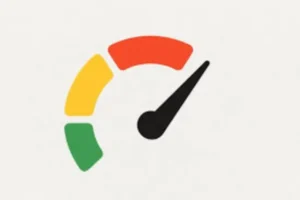Potential Federal Regulation of Sports Betting in the U.S.

The landscape of sports betting in the United States witnessed a dramatic transformation. This change wasn’t because of the differences in online casinos’ services like GGBET withdrawal time but happened due to the Supreme Court’s decision to overturn the Professional and Amateur Sports Protection (PASPA) in 2018. The rule change permitted states to legalize and regulate sports betting. Therefore, leading to a swift expansion of the industry.
However, things are about to change. Recent discussions within the U.S. government suggest that federal regulation is being considered. Hence, this will bring major changes to how sports betting operates across the country. Although this may seem like a purely domestic issue, its influence could extend beyond American borders, including places like Tenerife, a destination famous among American tourists and online gamblers.
Present Stance of Sports Betting in the United States
Since the repeal of the PASPA, more than 30 states have legalized sports betting in some form. This has created a disjointed regulatory environment. Hence, while some states like Nevada and New Jersey enjoy thriving sports betting markets, others integrate restrictive laws. The lack of federal oversight has led to inconsistencies in licensing, taxation, and user protections across various states. Various major factors drive this discussion. They are as follows.
- Consumer Protection — concerns over problem gambling, a sense of uniform responsible gaming measures, and fraud.
- Integrity of Sports — the risk of match-fixing and illegal betting activities because of inconsistent laws.
- Tax Revenue Optimization — a federal structure could simplify taxation and possibly boost government revenue.
- International Competition — offshore betting platforms keep attracting U.S. bettors and raising concerns about economic leakage.
Therefore, if the United States government introduced federal regulations, the entire betting industry could gravitate towards a more standardized system. One that influences stakeholders within and outside the country. This could include businesses and individuals associated with Tenerife.
Ways Potential U.S. Federal Sports Betting Regulations Could Influence Tenerife
Various ways unifying the sports betting laws in the United States could impact this region. They are as follows.
American Tourists
Tenerife is a popular travel destination for Europeans. Yet, it has seen an increase in American tourists in recent years, thanks to digital nomad-friendly policies and enhanced flight connections. Many of these visitors are used to placing bets on sports back home. Therefore, if federal laws in the country impose structured regulations on sports betting, American tourists may face limitations on betting apps, find transfers, and the availability of U.S.-based betting platforms while abroad.
If they are unable to use their usual sportsbooks because of these supposed restrictions, they may seek alternatives like European betting operators licensed in Spain or international platforms. Tenerife’s casinos and online gambling services could benefit from this change, as U.S. tourists seek legal and convenient betting options while on the island.
Expats and Digital Nomads
This location has become a spot for remote workers, many of whom are from the United States. The increase of digital nomadism has led to an increase in demand for online betting services to cater to various jurisdictions.
If the country enacts federal betting laws that include geo-blocking measures or restrict U.S. citizens from accessing offshore sportsbooks, expatriates staying in Tenerife may encounter difficulties in using their home-based betting accounts. For businesses operating here, this could be a chance to cater to American Express with legally compliant betting options under Spain’s betting regulations.
Online Gambling Operators
Spain, plus the Canary Islands, has a well-regulated gambling industry with laws guiding both brick-and-mortar and online betting operations. So, if the U.S. implements federal regulations that tighten restrictions on offshore gambling sites, some international betting operators that currently serve U.S. customers may need to reevaluate their market strategy. For operators based in Tenerife or those with a presence in Spain, this could mean new business opportunities, regulatory adjustments, and cross-border payment challenges.
International Sports Betting Trends
The U.S. has become one of the largest sports betting markets globally. So, if federal regulations reshape the industry, other countries, including Spain, may adjust their own policies in response. As a part of Spain’s gambling ecosystem, Tenerife could experience transformations in regulatory approach to market competition based on how the U.S. government implements its new laws.
The Future of Sports Betting
While the federal regulation of sports betting in the United States is not yet confirmed, discussions are becoming serious. However, if the government decides to implement nationwide rules, the effect will be felt beyond American borders. Ultimately, the U.S. federal regulations may be Aimed at controlling domestic betting activities. Hence, the ripple effects could reach destinations like Tenerife to shake the future of sports betting in unique ways.





